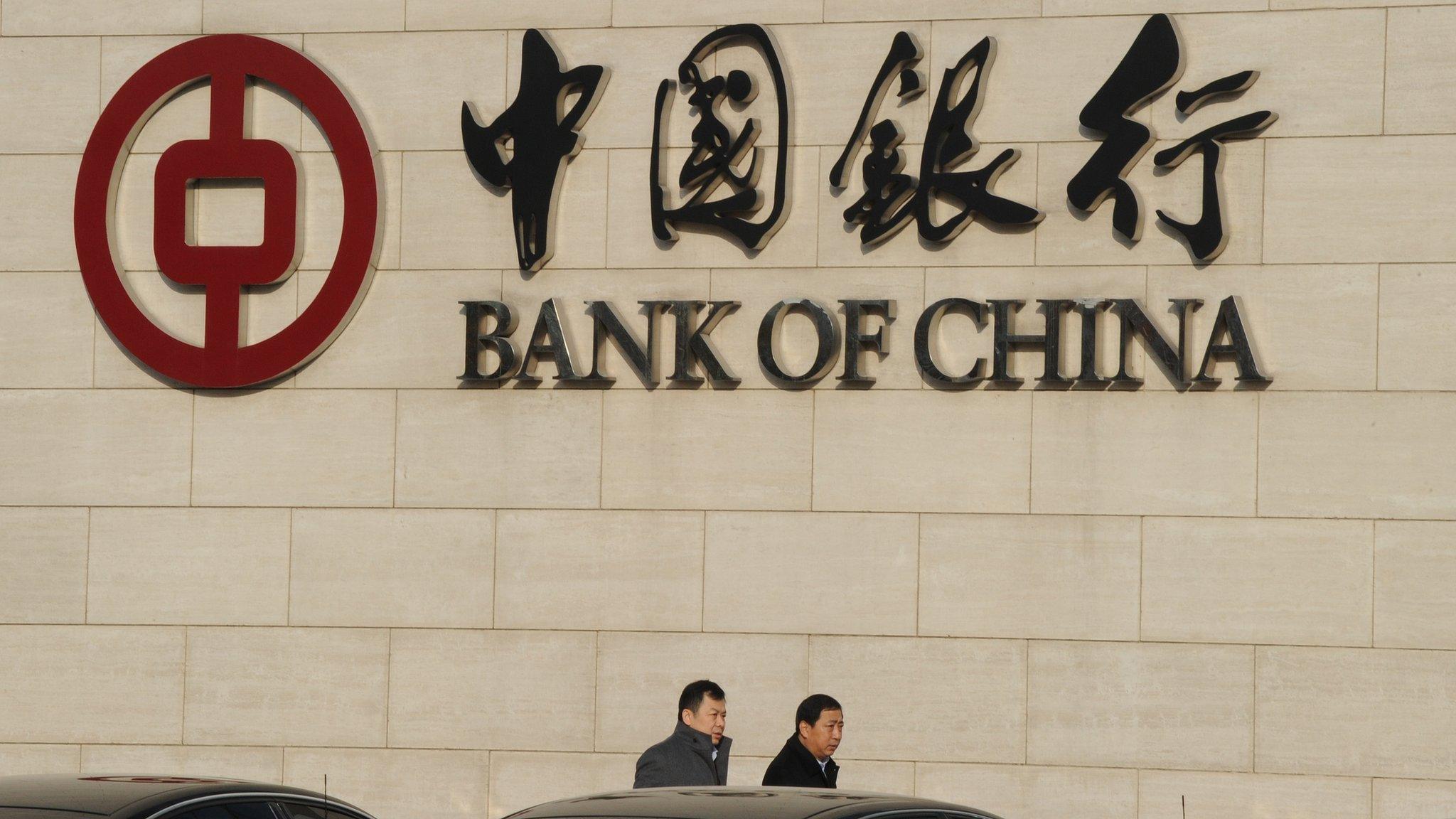Counterfeit Christmas: Fears over fakes on sale
- Published
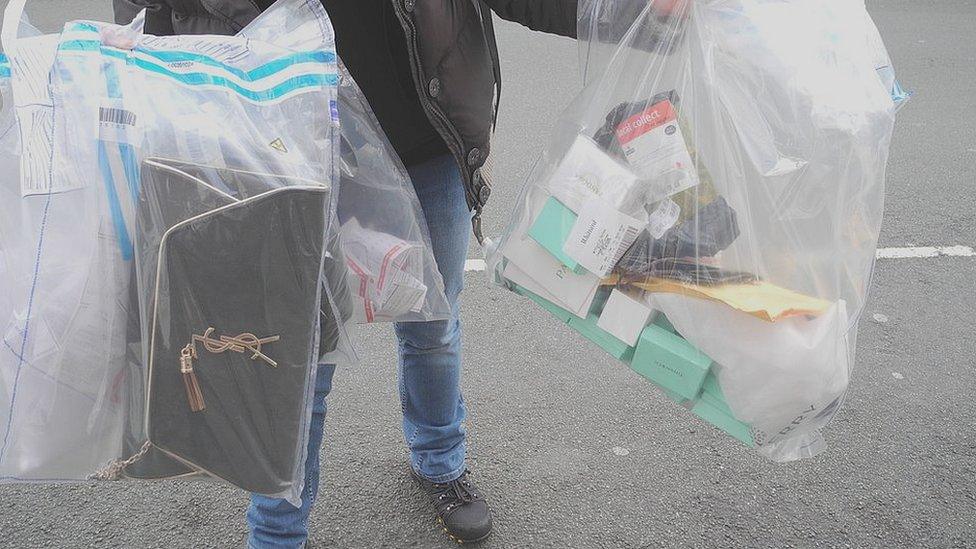
The trade in counterfeit products has moved online, where it can be hard to tell a genuine from a fake.
Lucy Lane ordered what she thought was a Nutribullet blender on eBay in February 2015. It turned out to be a counterfeit.
"I bought it from eBay and I paid £124.99 for it. I think they retailed for £150. That eBay [seller] came up as one of the cheapest but not by a dramatic amount."
"I didn't think for a minute that it could be fake - I mean £125 is still quite a lot of money. It's not like I'm paying 25 quid and hoping that it's real."
Lucy used it for several months and noticed one of the blades was starting to rust, but thought she hadn't dried it properly.
Then in October 2015, she was blitzing up some soup and "it exploded. The cup pretty much catapulted off the base and the liquid flew straight into my face."
"I just panicked. I thought 'God, this is burning through my skin.' You think the worst. That's how terrifying it was: it was just excruciating pain and you have no idea what you're going to be left with really."
Lucy was treated at A&E and attended a burns clinic. She said; "The deeper areas around my eyes - because it hit my eyelids - were scabbed. Luckily for me it healed. It could have been a lot worse, I'm thankful that it wasn't. It was very scary."

Lucy Lane received burns when a counterfeit Nutribullet blender 'exploded'.
Lucy contacted High Street TV- the official UK distributor of Nutribullet - and they told her it was a fake appliance. They say they warned eBay in October 2014 about the seller, E-Digitech based at Newbridge Crescent in Wolverhampton. But five months later the seller was still operating, and sold Lucy the fake blender.
E-Digitech told the BBC they "purchased these goods from abroad believing them to be genuine" but developed doubts about their authenticity and withdrew the stock from sale. They say they will give Lucy and other customers a refund.
Ebay say they have no record of being warned about this issue. They said counterfeits are "not welcome on eBay", and added that they work hard to protect legitimate sellers "through anti-counterfeit initiatives" which help brands to protect their goods.
Social media
High Street TV say the genuine Nutribullet is independently tested to ensure that it meets all UK and European safety regulations for electrical products of this type. They have a small team scouring the internet for counterfeit sellers, and say they are contacted by three or four people every day who discover they have purchased a fake.
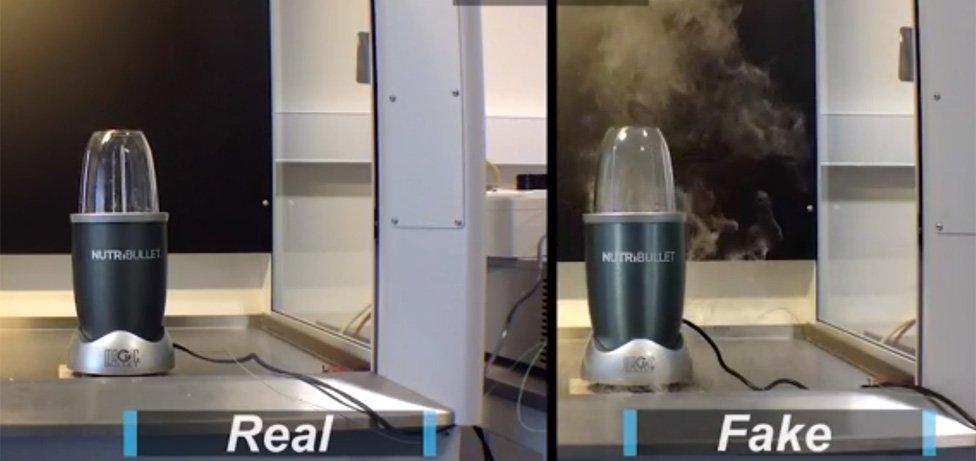
Whilst simulating what would happen if a piece of ice or stone jammed in the blades, the genuine product passed the safety test. However, the fake product exploded after just 4.28 seconds.
Donna Crossland of High Street TV told 5 live Investigates: "A lady contacted us last month, she was absolutely furious. She'd bought a Magic Bullet to make food for her six-month-old, and she fished out a bit of plastic from the back of her baby's throat. It was a counterfeit product and it had come apart. When you read an email like that your heart sinks.
"We've also seen reports of units exploding causing injury, which of course you would not get with the genuine article."
A report by the charity Electrical Safety First, external revealed the dangers of counterfeit electrical goods sold in the UK.
Steve Curtler, their product safety manager, told the BBC: "We've got serious concerns about the number of counterfeit electrical goods coming in to the UK. We know from the authorities' figures that there has been a 12% increase in the last year alone. A lot of those are from online sales."
He warned about the dangers of fake electrical goods: "They're not just a waste of money - they might not work - but they are actually a potential fire risk, electric shock risk. It's just not worth taking the chance."
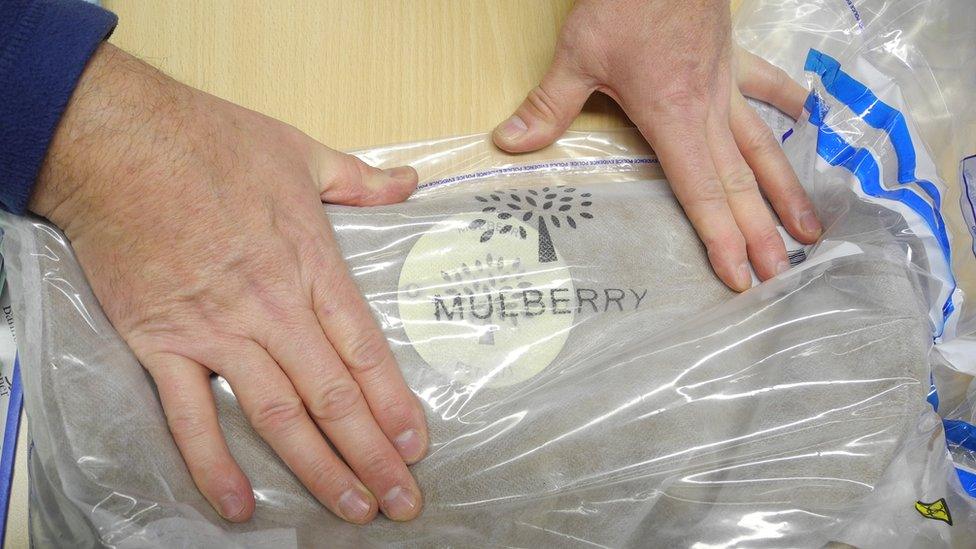
A counterfeit Mulberry bag seized by Trading Standards
The trade in counterfeits in the UK is believed to run into billions of pounds - with the government estimating that it loses £1.3 billion in unpaid tax from the sale of fakes.
Mike Andrews from the National Trading Standards eCrime Team, external says they are increasingly seeing counterfeit goods being sold on social media, rather than through conventional online shopping platforms.
He said: "This year we've worked more closely with Facebook than before to take down rogue profiles and listings selling dangerous counterfeit goods and pirated material.
"Interestingly, we've also seen more Facebook sellers switch to taking orders from consumers and fulfilling those orders with goods from third-party sources, "with an increasing number of counterfeits being sent directly from the manufacturer to the customer's address.
"This reduces the seller's risk of losing large amounts of their own stock if seized in any raids."
His team have been coordinating a national campaign - Operation Jasper, external - targeting counterfeiters selling their wares on social media. After the most recent operation, which ran for the last two weeks of November, 7,800 Facebook profiles were taken down or delisted, and 63 separate investigations launched.
Goods seized include Internet Protocol television boxes, clothing, footwear, headphones, and illicit tobacco.
5 live Investigates is on BBC 5 live on Sunday 13 December at 11:00 GMT. You can listen online afterwards or download the programme podcast.
- Published10 December 2015
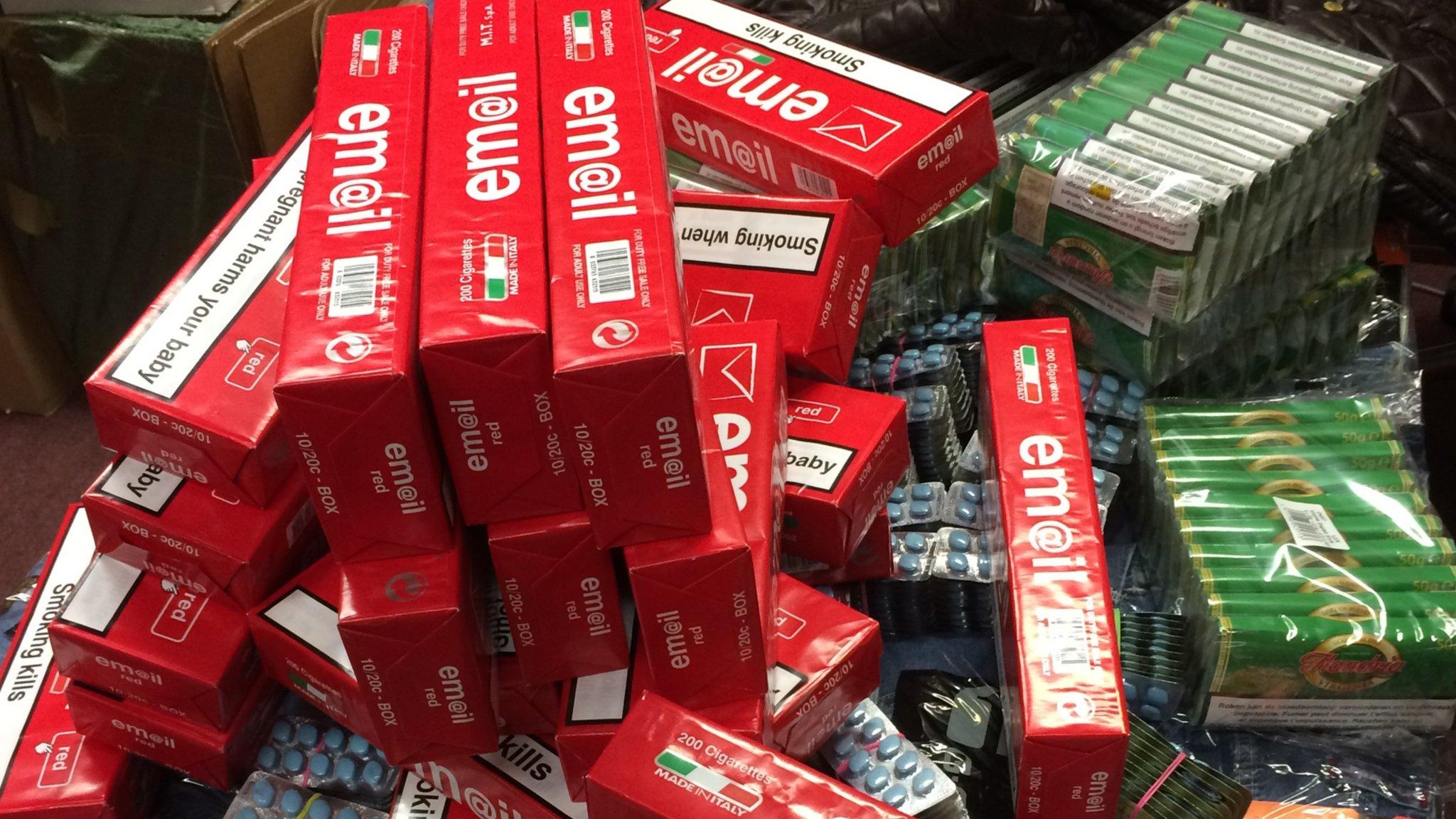
- Published2 December 2015
